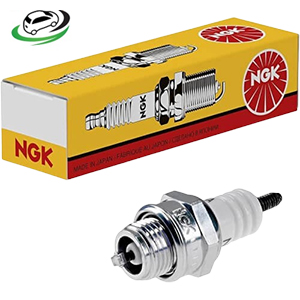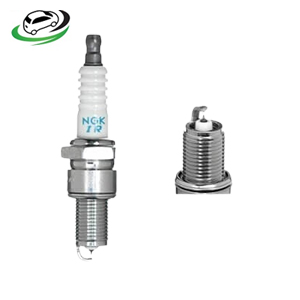-14%
Get NGK Spark Plugs IGR6A11 Mitsubishi
Spark plugs are critical components in internal combustion engines, playing a key role in igniting the air-fuel mixture that powers the engine. Here’s a detailed look at spark plugs:
Function
Spark plugs deliver electric current from the ignition system to the combustion chamber of an engine to ignite the compressed air-fuel mixture with an electric spark.
Components
- Insulator: Usually made of ceramic, it insulates the central electrode from the spark plug shell.
- Central Electrode: Conducts the high voltage to the gap.
- Ground Electrode: Provides the gap where the spark occurs.
- Threads: Screw into the cylinder head.
- Gasket: Ensures a gas-tight seal.
- Hexagon: Allows the use of a wrench to tighten or remove the spark plug.
Types
- Copper: Good conductor of electricity and heat, but wears out relatively quickly.
- Platinum: Longer-lasting than copper, with better performance under extreme conditions.
- Iridium: Offers the longest lifespan and best performance, though they are more expensive.
- Double Platinum/Iridium: Have both electrodes coated for improved performance and durability.
Heat Range
- Hot Plugs: Have a longer insulator nose and retain heat longer, used for low-speed driving.
- Cold Plugs: Have a shorter insulator nose and dissipate heat quickly, used for high-performance or high-speed engines.
Maintenance and Symptoms of Failure
- Regular Inspection: Spark plugs should be checked and replaced as part of regular maintenance.
- Symptoms of Failure:
- Misfires
- Poor fuel economy
- Hard starting
- Rough idling
- Poor acceleration
Installation Tips
- Ensure the correct gap setting as specified by the vehicle manufacturer.
- Avoid overtightening to prevent damage to the threads.
- Use anti-seize compounds sparingly, if at all, as recommended by some manufacturers.
Follow us on Facebook for more parts.



